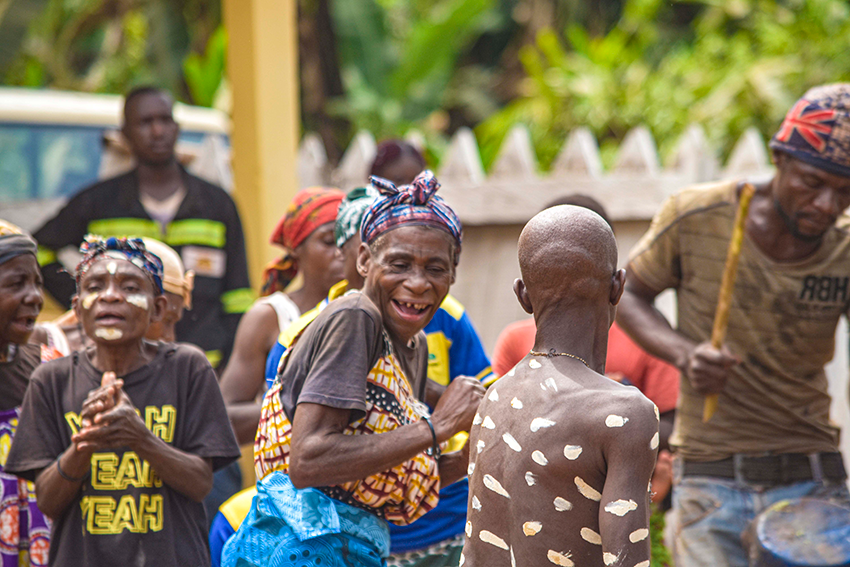
A Fruitful 2023!
FTNS activities in 2023 were marked by considerable achievements in terms of raising new funding, the fight against poaching and respect for human rights. Several initiatives were also undertaken to improve the living conditions of the people of the Sangha Tri-national (TNS).
A good portfolio performance in 2023!
In terms of endowment capital management, 2023 was marked by a 9.23% increase in our portfolio FTNS (an increase from 63.3 to 66.4 million euros), one of our best performances since our creation. This enabled the FTNS Board of Directors to grant XAF 2,649,598,939 FCFA (approximately €4,038,520) to the TNS parks for 2024 to facilitate their operation and the execution of several projects. FTNS has also reallocated its investment portfolio, notably through the decision to invest in local markets in Central Africa as from 2024.
New funding and new projects!
In terms of sourcing new funding, FTNS obtained the necessary patronage from the three TNS countries to mobilise new multilateral funds. New projects have also been launched such as the CAPRO TNS project as part of the RESSAC initiative (Applied Research in Ecology and Social Sciences of Central African Forest Ecosystems) implemented by CIFOR-ICRAF. It aims at strengthening the impact of research on the sustainable management of Central African forest ecosystems. This enabled FTNS receive funding of around €160,000 to address “The issue of the cocoa economy at the interface of protected areas in the TNS”.
FTNS also received two grants from the Consortium of African Environmental Funds, one of which will support private sector initiatives relating to sustainable agricultural practices and access to financial services by local organisations in the TNS, and the other to build the capacity of FTNS’s governing bodies.
Zero elephants poached in parks in 2023!
In terms of conservation, no elephants were poached in the three TNS parks in 2023! This unprecedented achievement reinforces the anti-poaching efforts carried out in TNS with the support of FTNS funds. Nevertheless, some carcasses have been found in the outlying areas of the parks, prompting conservation stakeholders not to relent in their efforts.
In terms of innovation, the three TNS parks are now equipped with acoustic monitoring units following the recent installation of this technology in the Lobéké National Park. These facilities now enable the TNS protected areas to record sound emissions produced by gunfire or animals. This data provides park managers with the necessary information required to better deploy their anti-poaching units.
Overall, the parks’ patrolling efforts resulted in 761 surveillance patrols (covering 98,364 km), which facilitated the seizure of 5,708 kg of bushmeat, around 40 ivory tusks and 1,353 rounds of ammunition. The patrols also led to the arrests of 41 poachers, results that have helped to reduce the pressure on wildlife resources.
Always at the service of the local and indigenous populations of the TNS
FTNS remained faithful to its policy of supporting the socio-economic development of the TNS communities. In terms of educational support, the parks provided scholarships to 2,205 primary and secondary school pupils and 5 university students from socially disadvantaged backgrounds. In addition, 150 teachers were also supported or fully paid for.
The Bomassa modern primary school, which will be completed in 2022, was also inaugurated by Ms Rosalie Matondo, Minister of Forest Economy, and Mr Jean-Luc MOUTHOU, Minister of Pre-school, Primary and Secondary Education and Literacy, in the presence of the District Prefect of Sangha and the Sub-prefect of the Kabo district. The school’s construction was undertaken in partnership with FTNS and KFW, and provides pupils and teachers with modern classrooms and equipment.
Ongoing support for the promotion of the human rights of indigenous minorities
In terms of promoting human rights, FTNS facilitated the renewed signing of the Memorandum of Understanding (MoU) between the Ministry of Forestry and Wildlife and the Baka association “Sanguia Baka Buma’a Kpode” (ASBABUK) to establish terms and conditions for regulating their access to forests.
Unlike the first MoU, this second signing includes forest concessions located around protected areas. Through this agreement, MINFOF and ASBABUK undertake to work together to facilitate regulated access by the Baka to the forests to promote their ancestral rights in terms of biodiversity conservation and the exercise of traditional activities in their resource areas.
FTNS funds have also facilitated the equipping and support of civil society structures such as ASBABUK and the Bayanga Human Rights Centre (MFEP) for the implementation of complaints management mechanisms in TNS protected areas.
Our mission is to guarantee sustainable funding to preserve TNS World Heritage Site and its populations
More than ever, we remain convinced of the importance of our mission, which has continued to grow since our creation in 2007. In an international context of extreme tension, we are redoubling our field efforts, with results improving every year, in the TNS, where our partners are protecting and restoring natural environments, while helping to transform value chains to make them sustainable.

